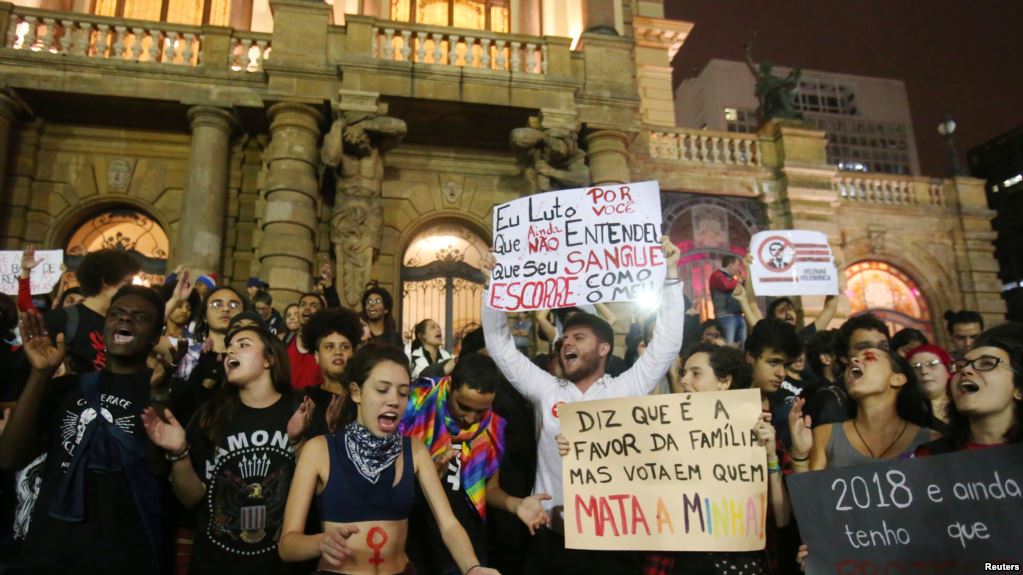






Ler no texto original em português
Fear, anxiety and depression currently grip human rights defenders in Brazil. Not only because it is the country that kills the most defenders in the world, according to data from Global Witness, but because this terrible scenario could be worsened by the outcome of the upcoming presidential election.
The leading candidate, Jair Messias Bolsonaro, a retired army captain who praises the military dictatorship, is openly pro-torture, and has professed an agenda for the harassment of minorities and the devaluing of human rights. On several occasions, the candidate stated that the “mistake of the dictatorship was to torture, not kill.” while also maintaining an arsenal of homophobic, misogynist and racist statements. Bolsonaro has already declared himself openly homophobic and said he would prefer a “dead son to a homosexual son.”
As a lawyer for CEJIL, I have litigated several cases of serious human rights violations before the Inter-American system. In this role, I worked directly on some cases of historical debt and crimes of the Brazilian military dictatorship. Brazil is one of the few countries in the American continent where transitional justice has not been initiated. Unlike neighboring countries like Argentina, Uruguay and Chile, Brazil has never investigated, prosecuted or punished the barbaric crimes committed by the military regime.
One of these emblematic crimes was the execution of journalist Vladimir Herzog. On October 25th, 1975, the director of journalism for TV Cultura was taken to testify at the Army’s premises in the city of São Paulo, due to his unarmed militancy in the Brazilian Communist Party. That very afternoon, Herzog was killed. The story released by the authorities is that the journalist committed “suicide”, forging the infamous photo of him appearing to be hanging on his knees – a symbol of the petulance of the regime.
It took more than 40 years for the Inter-American Court of Human Rights to finally recognize, in July of 2018, that Herzog’s death was due to torture. In this important historical step, the Court recognized the crimes committed by State agents during the Brazilian military dictatorship as crimes against humanity – an international category of crimes considered to be of the greatest seriousness – and therefore would not be subject to amnesty, or other legal constraints.
However, these democratic achievements are now under threat. This is because the candidate leading the presidential race not only praises the torturers but also says that the solution for Brazil would be “to kill 30,000”. If elected, Bolsonaro will be responsible for the appointment of three STF ministers and a new Attorney General. The assessment of members of the judiciary and MPF is that these institutions will not be able to contain the advancement of authoritarianism from the imposed framework. We can imagine the potential damage that could be done in the coming years from having a majority in the legislative houses.
I illustrate the current scenario to say that I am not afraid, but I do dread what is to come. As a gay man, a lawyer, a human rights activist, who directly acted to obtain justice in the crimes of the military dictatorship, I am undoubtedly one of the direct targets. I fear for my life and for the lives of my companions, because after January 1st, 2019, human rights defenders will be targets in Brazil.
I try to remain calm and sober, because the fight must continue, but I can not deceive myself. I would like to be strong and say that I do not fear death, torture or disappearance, but, in fact, I am very afraid and feel as if this situation tests the limits of my existence. Today, I fear that my destiny will be like that of Vladimir Herzog. But I must continue working for the sake of the communities that I will fight alongside with.
Help us continue this critical and urgent work with a donation!
DONATE NOW